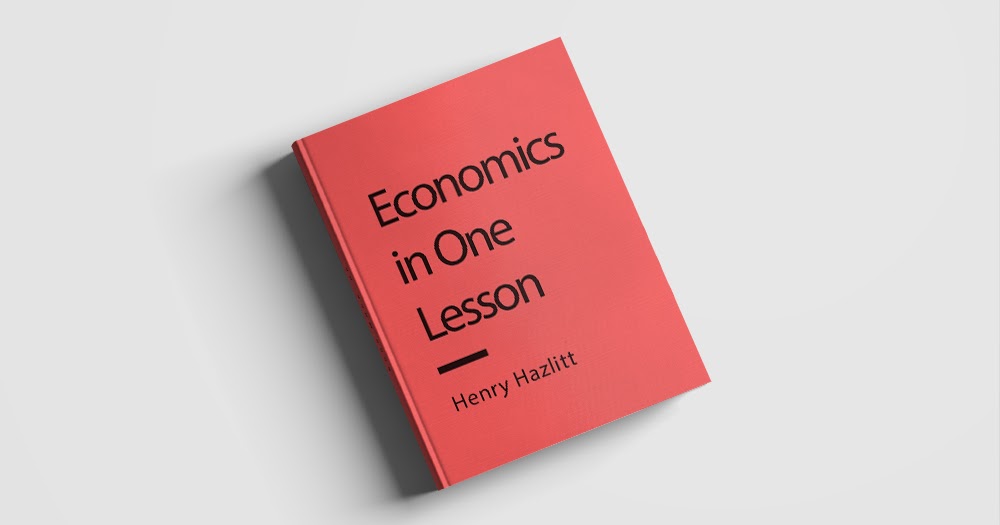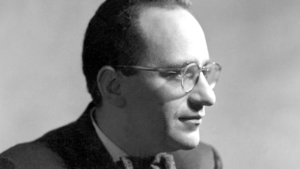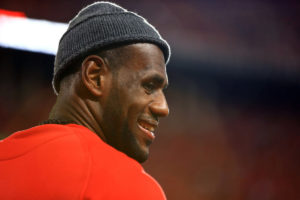
Tariff (noun): a tax or duty to be paid on a particular class of imports or exports
US president Donald Trump’s entire economic platform has been that of protectionism and tariffs. With claims of the US population being ripped off by foreign labor and products to justify trade wars and policies to reduce imports, it’s difficult to see any good in Trump’s economic policies, despite his weak push for deregulation (of domestic industry, of course) and lower income taxes. On the 25th of July, 2018, it was reported that Trump is planning to impose a tariff of 25% on nearly $200 billion USD worth of foreign cars. “Are we just going to continue and let our farmers and country get ripped off?” asks Trump.
As Henry Hazlitt explains in the first chapter of his bestselling book, “Economics in One Lesson,” to understand the ramifications of protectionism, one must first learn to see not just the short term effects of a given economic policy, but rather the long term effects of the policy as well. One must also see the effects of economic policies on not just one group of people, but all groups of people. There is no denying that tariffs have a positive effect on protected industries, as well as those employed there and the shareholders of those companies. But what other long term effects do tariffs have? What other groups of people do they effect and how?
In the second chapter, Hazlitt demonstrates the broken window fallacy (coined by French economist and writer Frederic Bastiat) using an example of a baker whose window was smashed by a troublesome boy. People say that since he has to spend $250 on a new window, he is creating employment for the glazier. What they fail to see is that the tailor will now lose $250, since the baker was planning on buying a new suit, and now, as a result of needing to fix the broken window, can’t. If the window didn’t break, $250 would’ve been spent on the suit, so it can be concluded that the employment “created“ as a result of the window breaking doesn’t add any net employment; it takes away from the tailor. Not only is there no increase in net employment, but the baker is now poorer, since instead of having an unbroken window and a suit, he now has only the window.
This line of reasoning can be applied to tariffs to see their full effect. Firstly, it must be asked why tariffs come into existence. To create jobs? Yes, but why are they needed? Because cheaper foreign goods make it harder for domestic businesses to compete and thus, they go bankrupt and can no longer employ anyone. However, it should be noted that if consumers buy cheaper goods, they have more money to spend on other industries, which means those other industries can afford to hire more employees, which in turn, means no loss of total employment. Having tariffs, however, means that a consumer must pay more for that product, just so domestic industries can compete. The consumer is left with the same product, alongside an emptier wallet.
So tariffs not only don’t increase employment, but they reduce the wealth of the consumers. There is another effect worth observing, described by Hazlitt as even worse. If a domestic industry can’t compete, they go out of business, freeing up resources to be invested in different industries which the nation is actually efficient at. But if the tariff is “protecting” these inefficient industries against superior, foreign competition, they will stay in business and waste resources that would’ve otherwise been used differently. Hazlitt essentially says that this is making the inefficient industries larger at the expense of the efficient industries, which become smaller, meaning that despite the ever so thoughtful politicians’ best efforts, the public is objectively poorer.
There is yet another effect tariffs have, and that is production costs. Industries that rely on the protected good for manufacturing their products will have to increase their prices to cover the increased production cost. Many a times, this means they simply won’t be able to sell, domestically and internationally, and thus, they shut down, which of course leads to their employees losing their jobs.
Speaking of international trade, many are under the impression that while imports are damaging to the health of the national economy, exports are good and that the nation, as a whole, should aim to maximize exports. This is a contradictory belief, as the money foreigners make from selling their goods in let’s say, for example, the US, is the same money they use to buy US goods. Imported goods means a foreigner now has US dollars which he MUST use to buy US goods. There is no other use for them (and yes, exchanging them for their own currency still means someone was willing to exchange currencies and buy US dollars, to use them to buy US goods and services). So by reducing imports, politicians are, in effect, reducing exports also, which of course, lowers employment, production and wealth.
The same principles apply to outsourcing, only difference is that there is no imported item, but rather labor. As written in chapter 36 of Lawrence Reed’s “Excuse Me, Professor”, outsourcing is typically seen destructive to domestic employment, but there is only one reason why a business would hire foreign workers. That is, if they can do the job with less of a cost, which is equivalent of a cheaper good being shipped in. This optimization of efficiency leads to more wealth being created at less of a cost, meaning consumers will have more purchasing power, which ultimately means everyone becomes richer.
Economics professor Thomas J. DiLorenzo adds to this. In his 1988 article titled “The Political Economy of Protectionism”, DiLorenzo busts several myths about protectionism, namely, the need for “temporary protection”, and well as justification for tariffs when the other country has also got trade barriers enacted. For the first claim, DiLorenzo states that industries that were given “temporary protection” 25 years before the publication of the article were still being relieved to that day. In fact, Milton Freidman once said: “Nothing is so permanent as a temporary government program.”
DiLorenzo further explains that the less competitive environment not only doesn’t lead to the industry eventually flourishing, but rather makes them worse, as there is less competition and thus less pressure on the domestic businesses and companies to improve. Despite this, some people claim that industries needed for national defense must be protected so the country need not trade with other countries, other potential enemies, for defense. This is stupid of course, since those essential industries would become worse off if they are to be protected.
Some will say that tariffs are justified if done in retaliation, if the country having the import tax imposed has tariffs imposed on US exports, for example. When one knows the effect of protectionism, one must realize that while yes, it’s harder to compete and sell there, the damage is done mostly to the people of that country. If US citizens buy cheap goods from that country, they are still better off. With all that USD, that country would have to buy the now expensive US goods. In fact, protective retaliation can be very dangerous.
DiLorenzo writes: “Trade retaliation can be a very dangerous political game. The Smoot-Hawley tariff of 1930 spawned an international trade war that helped precipitate the Great Depression. Dozens of countries responded to the Smoot-Hawley tariff by erecting trade barriers for American-made goods. Consequently, the value of imports in the 75 most active trading countries fell from over $3 billion in 1929 to about $1 billion by 1932, driving the world economy into a depression.
Trade retaliation is inherently counterproductive. By reducing the flow of dollars from the U.S., foreigners will have fewer dollars to spend in the U.S., which eventually will harm American export industries. American exports generally fall once imports are reduced. Consequently, employment in export-related industries, which account for as much as one-fifth of all employment in the U.S., will fall.”
In a more recent article on lewrockwell.com titled “Fake Populism”, DiLorenzo explains that despite protectionism being seen as a populist phenomenon, it is actually very far from it, as it benefits the well-connected corporations and the small workforce employed by them at the expense of everyone else in the nation, delivering for them not only higher prices and lower economic growth, but also makes them less competitive in international markets.
In his 2011 book “Liberty Defined”, former congressman Ron Paul writes a chapter about trade policies, stating that protectionism, as well as sanctions, are acts of war, and that free international trade with countries helps maintain a friendly foreign policy. Frederic Bastiat once said: “When goods don’t cross borders, Soldiers will.” Paul also talks about free trade agreements such as NAFTA, mentioning how bureaucratic they are, especially in crony capitalist system where the special interests of big businesses who are hand in hand with the government are to be fulfilled. He argues that in a true free market, the only special interest group is the consumer. In the last page of the chapter, Paul talks about how many object to the fact that the foreign countries which goods are bought from employ the use of “slave labor”, which he says is rubbish, as the standards of living of those so-called slaves are actually increasing.
Now, one must be tempted to ask, why does Trump want tariffs? One is most likely not to consider his vigorous studying and researching of economics as a likely reason. Jeffrey Tucker, in his 2017 book titled “Right-Wing Collectivism”, claims that Trump sees the US as a “business” with himself as the CEO, trying to destroy the competition. Tucker writes: “What do capitalists at his level do? They beat the competition. What does he believe he should do as president? Beat the competition, which means other countries, which means wage a trade war.” Tucker continues, several sentences later: “Trump wants to run the entire nation as if it were Trump Tower.”
This may sound weird, since of course, if someone is a businessman like Trump is, then surely they must understand economics? Not necessarily. On the Mises Institute website, Chris Calton explains in an article titled “Why Businessmen Don’t Make Good Politicians” that although many conservatives seem to think businessmen understand economics, they’re wrong. This is because economic knowledge is not something a businessman needs to compete. All he must do is predict market demand and compete. Calton cites Mises, from his 1912 book, “The Theory of Money and Credit”, saying: “There are no grounds for ascribing authoritative significance to the opinions of business men” and essentially concludes in agreement with Tucker’s position that the president is competing with other countries like he would with other businesses.
Unfortunately, that is not all. Farmer’s impacted by the Trump administrations protectionist policies are to receive a 12 billion dollar bailout. In an article on the Mises Institute website titled “Trump’s Road to Socialism,” Tho Bishop shows Trump’s ignorance: “Tariffs are the greatest” and “Trade wars are easy to win”. If one values the free market, liberty and individualism, then he must stand against government interventions. Bishop states: “The domestic policy of government interference with business is a necessary corollary of present-day protectionism. The result is an economy that increasingly replaces the market with state control.”
In conclusion, after considering all the different economic effects of protective tariffs on all groups of people, one must realize that there is nothing good about them, and that they should always be opposed. However, there is one more argument against protectionism, tariffs and state intervention of any sort, not from an economics point of view but rather from a moral one. One must realize that everything a government does, it does through force. Its tariffs and other interventions are no exception. How can the state increase the cost of something without force? Tariffs are, in short, a tax on imports…and taxation is theft.
As Frederic Bastiat discussed in his short essay, “The Law”, all humans have the natural rights to themselves, their freedom and their property. All other state legislation are acts of violence against the people. He also explained how the intellectuals, arrogantly thinking they know what is best for everyone, see people as chess pieces for themselves to control, or as ants in the ant farm known as society for which they wish to plan.



